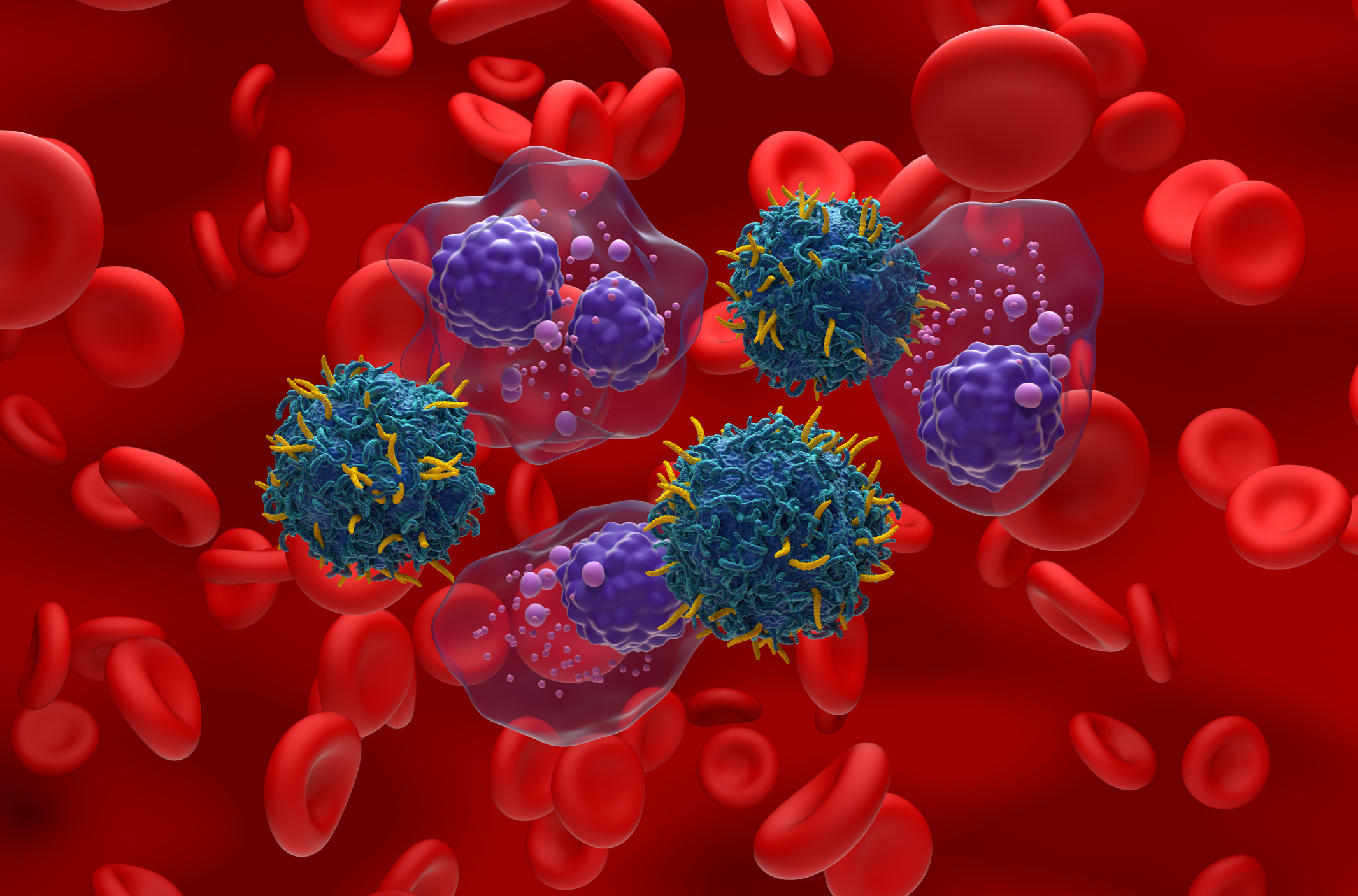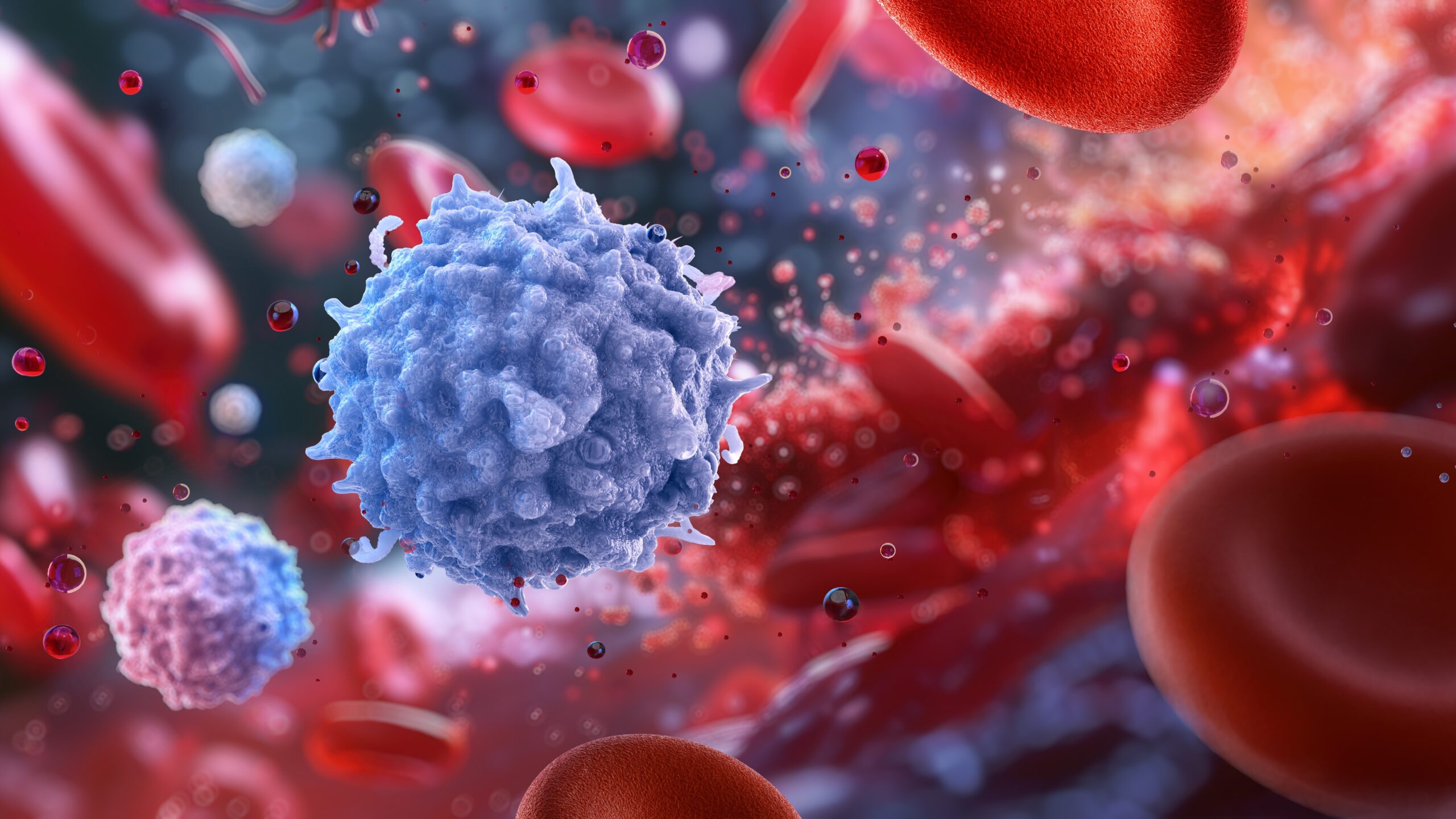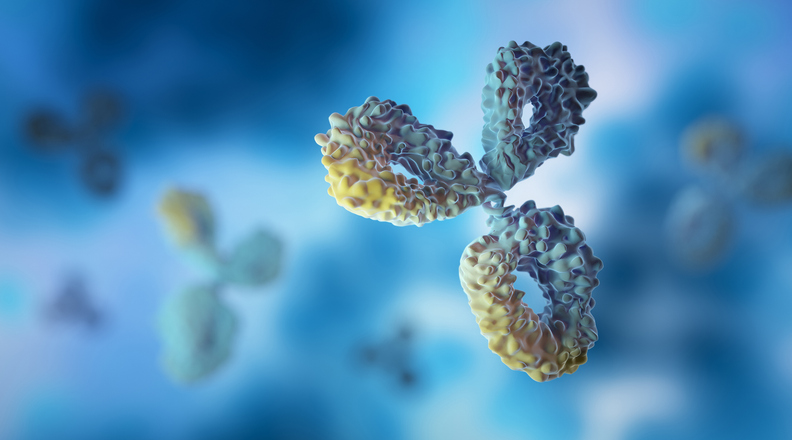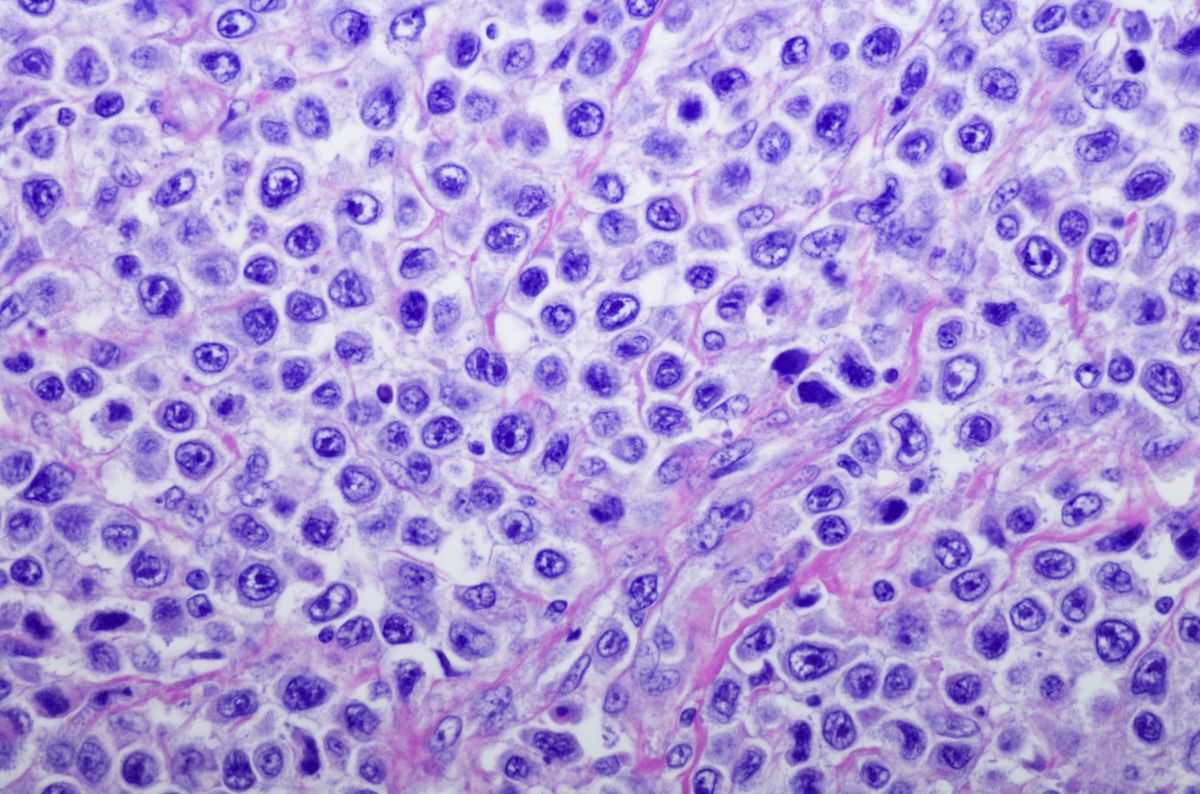
Patients with myelodysplastic syndromes (MDS) or acute myeloid leukemia (AML) treated with magrolimab and azacitidine experienced a reduction in the allele frequency of TP53 mutations in as early as three cycles of treatment, according to a presentation at the 2022 American Society of Hematology Annual Meeting and Exposition.
The results, presented by Lisa Johnson, PhD, of Gilead Sciences in Foster City, California, and colleagues, show that the therapy can potentially alter the course of disease in patients with TP53-mutated malignancies.
The results of the phase Ib study are from a subset of patients with AML (n=23) or MDS (n=56) receiving magrolimab plus azacitidine in a phase I trial to identify genetic mutations prognostic of response and overall survival.
In the trial, magrolimab was administered in an escalating dose from 1 mg/kg to 30 mg/kg for the first two weeks, then at a maintenance dose of 30 mg/kg weekly or once every two weeks from cycle three onward. Azacitidine 75 mg/m2 was administered on days one through seven of each 28-day cycle.
Whole-exome sequencing was performed on available samples from screening and post-treatment bone marrow aspirates from treatment-naïve patients with Revised International Prognostic Scoring System higher-risk MDS and patients with AML ineligible for induction therapy. A variant allele frequency (VAF) cutoff of 0.07 was set.
Among eight patients with TP53-mutated MDS, three (38%) achieved complete remission (CR), and one (13%) had a marrow CR (mCR). In comparison, 13 of 43 (30%) patients with wild-type TP53 MDS achieved CR, and 15 (35%) had an mCR. All three patients achieving a CR fell below the TP53 VAF cutoff of 0.07 by day one of cycle five.
Among 22 patients with TP53-mutated AML, 13 (59%) achieved CR, two (9%) had CR with incomplete recovery or CR with partial hematologic recovery, and one (5%) had morphologic leukemia-free state status. Among 13 patients with CR, TP53 VAF less than 0.07 was observed in seven patients (54%) on day one of cycle three, nine of 12 (75%) on day one of cycle five, and three of five (60%) on day one of cycle seven. In patients with TP53 wild-type AML, six of 13 (46%) achieved CR.
Reference
Johnson L, Zhang Y, Biao L. Nature of clinical response and depth of molecular response in patients with TP53 mutant myelodysplastic syndromes (MDS) and acute myeloid leukemia (AML) treated with magrolimab with azacitidine. Abstract #3083. Presented at the 64th ASH Annual Meeting and Exposition; December 10-13, 2022; New Orleans, Louisiana.






 © 2025 Mashup Media, LLC, a Formedics Property. All Rights Reserved.
© 2025 Mashup Media, LLC, a Formedics Property. All Rights Reserved.